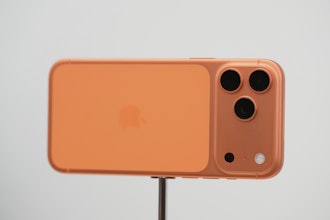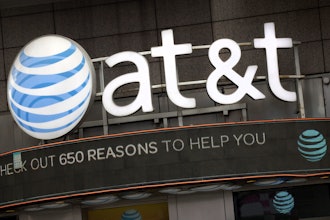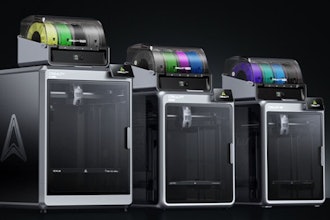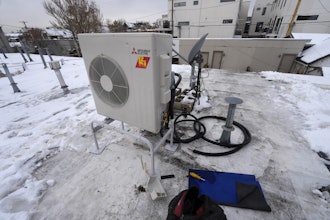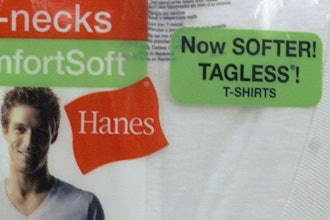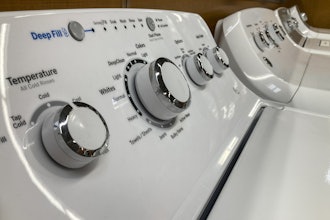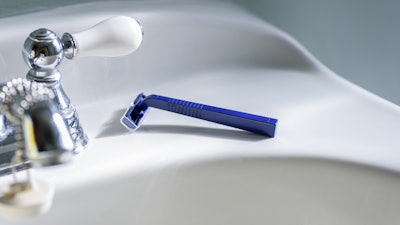
NEW YORK (AP) — How bad is your disposable razor for the environment? The question is gaining attention among consumers amid a growing global campaign against plastic waste, with cities and countries introducing bans on single-use plastic bags and straws.
Don't worry, there's no talk of banning your razor, which isn't exactly single use. Still, billions of plastic razors and refill blade cartridges get tossed in landfills each year. Municipal recycling programs in the U.S. will not accept them because they are sharp objects made of mixed materials.
What can be done? Well, there are no perfectly convenient options, aside from foregoing shaving altogether. For those concerned about an eco-friendlier shave, here are some things to know.
Fate of Disposable Razors
The Environmental Protection Agency once estimated that 2 billion razors and refill blades get tossed out in the U.S. each year. That figure is widely cited by recycling advocates and startups marketing eco-friendly razors. Gillette, the world's leading razor brand, also cites the number on a website detailing a new recycling program for razors launched earlier this year.
But the figure appears to date back to an EPA campaign from the late 1980s against a national "garbage crisis." A 1990 "Environmental Consumer's Handbook" on the EPA's website says the U.S. produces "2 billion throwaway razors and blades" each year. The EPA now says it does not track the impact of disposable razors on the environment and has no update on the figure.
It's likely even higher. Last year, more than $1.2 billion in disposable razors were sold in the U.S, according to market research firm Euromonitor. Prices vary widely but many disposables are less than $1 each.
Recycle Your Razors
There are few options for recycling razors. The French company BIC started a razor recycling program in France a few years ago that didn't last.
Now, Gillette is trying out a similar idea in the U.S. in partnership with Terracycle, an organization that specializes in hard-to-recycle waste. All brands of razors are accepted.
The easiest option is mailing the razors to Terracycle, but the shipping costs are on you. At no cost, you can deliver razors to drop-off centers on Terracycle's interactive map. But with only 200 locations so far, the option is not practical for many. (There's only one site so far in California, and six in Florida.) Stephanie Moses, an account director for Terracycle, said the program is growing quickly, and the map will be updated to show 350 locations by mid-August.
Double-Edged Safety Razor Comeback
Remember the old-school safety razor your grandfather used? It's making a comeback. Trendy direct-to-consumer brands have reintroduced them to younger generations, most prominently Bevel, the grooming lined aimed at black men, and Oui Shave, one of the few safety razor brands aimed at women.
Safety razors are built to last, usually made of materials like steel or chrome. The only waste is the steel blades, and some municipalities recycle them. Oui founder Karen Young said she's developing a map for her site to show which ones. Newcomer brand Leaf Shave allows customers to mail back their blades in a custom-made tin box for recycling.
The tricky thing is that safety razors come with a higher upfront cost, ranging anywhere from $15 to more than $200 depending on the brand. However, the refill blades are cheap, as low as 20 cents each, compared to $2 for the average modern cartridge.
You can familiarize yourself with established brands through long-time retailers like GroomingLounge.com and The Art of Shaving. Michael Gilman, founder of GroomingLounge.com, said safety razors are a small but fast-growing part of his business, with blade sales tripling in the past year. Beginners should go for the lower-priced razors and look for closed-comb design and weighted handles, he said.
If you are looking to try one out, however, most of the newer digital brands offer 30-day returns, regardless of whether the razor is used.
Eco-Friendly Options
Safety razors are not made for rushed morning routines. And frequent fliers be warned: you can't throw the blades into your carry-on luggage. The Transportation Safety Administration wrote a blog post about it after finding that "they're making a comeback thanks to the close shave they provide and the extremely affordable price of the replacement blades."
If it's not for you, at least switching to a cartridge with a reusable handle reduces the waste. Already, that is the more popular option among U.S. men, according to Euromonitor figures, though women in the U.S. still spend more money on fully disposable plastic razors.









